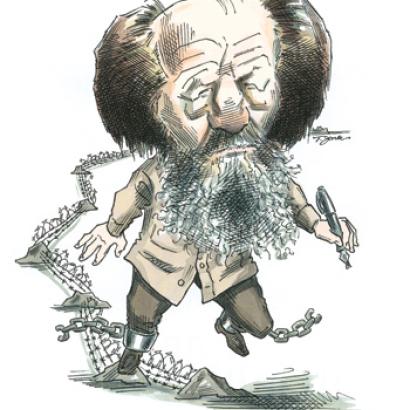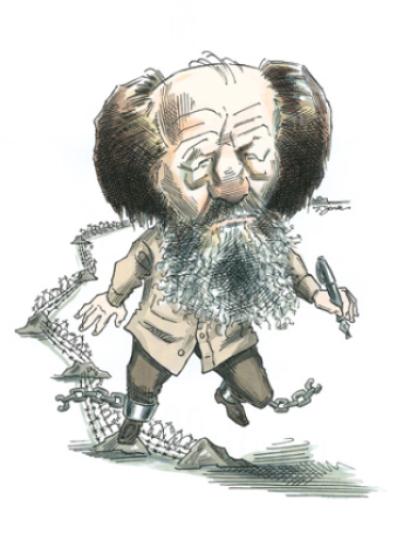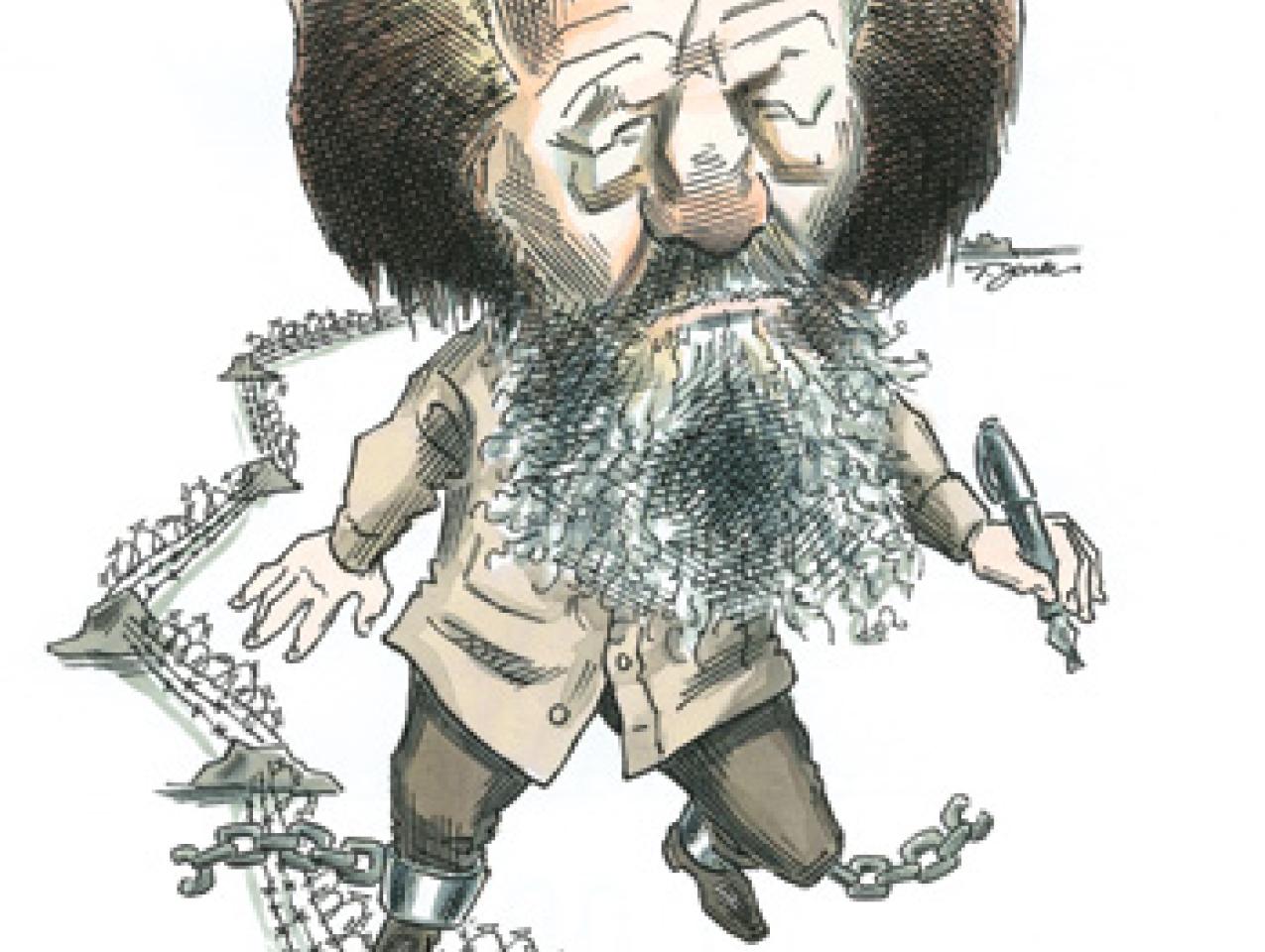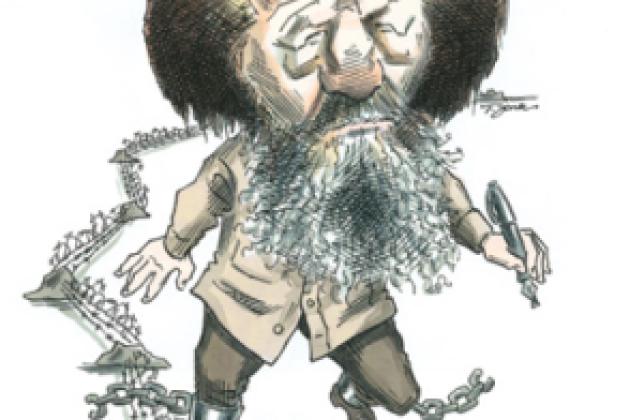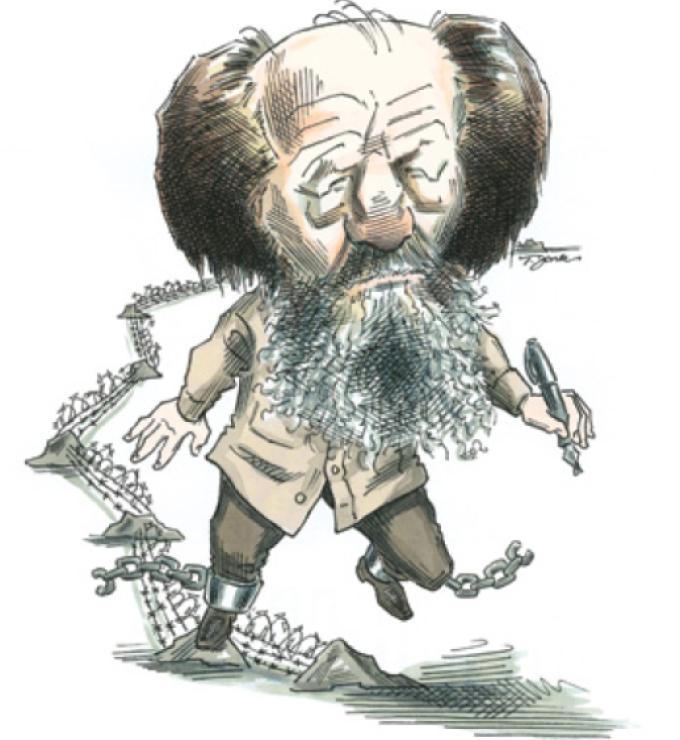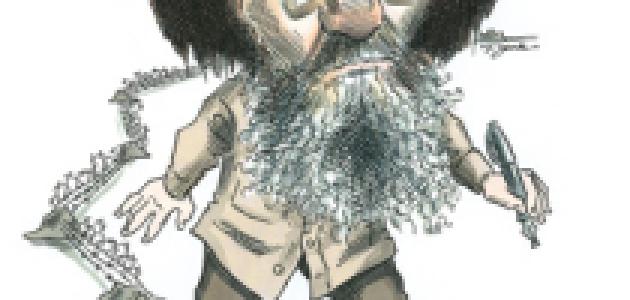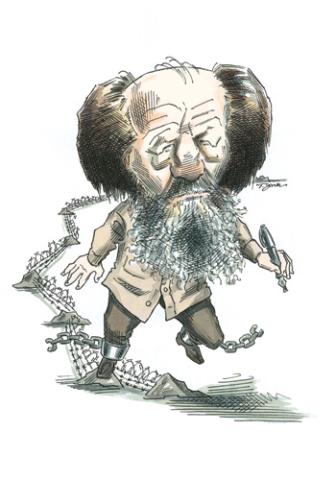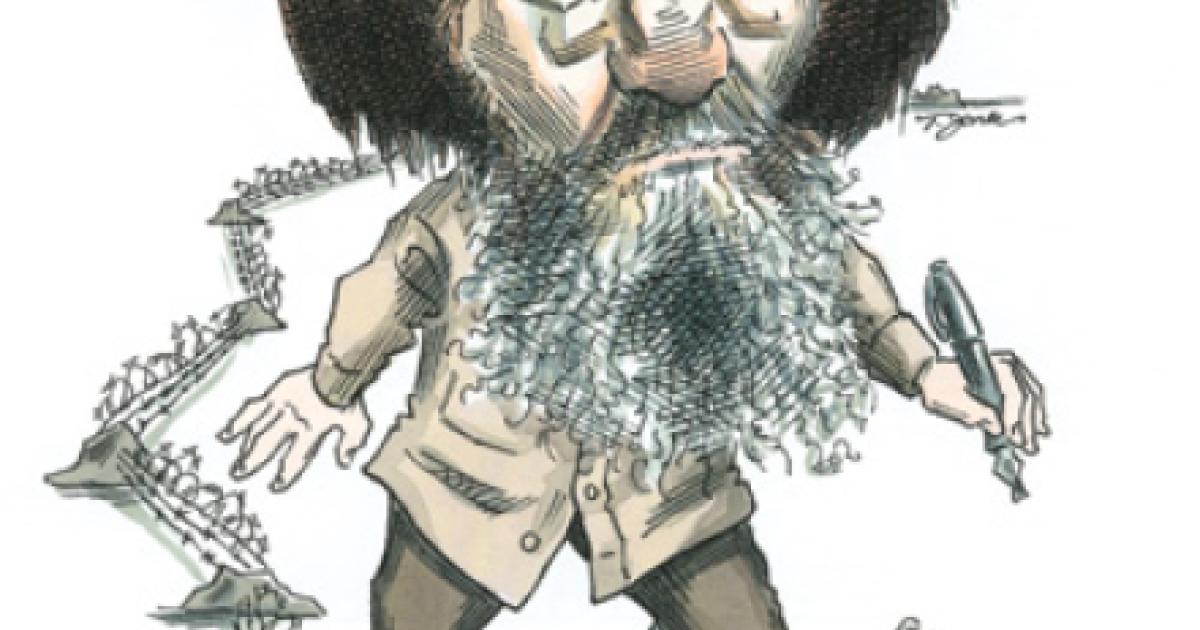- International Affairs
- World
- US
- Contemporary
- US Foreign Policy
- Law & Policy
- Civil Rights & Race
- History
The core of freedom is making choices and living in accordance with them.
So understood, freedom is not a recent invention. Men and women have always dreamed of it. But they have not always understood freedom as a human right, as a great good that all human beings should enjoy, by virtue of their shared humanity, as a vital element of human dignity.
According to the great nineteenth-century German philosopher Wilhelm Friedrich Hegel, our understanding of freedom developed in three historical stages. In the first, the despotisms of distant antiquity, one person, the despot, was free. He treasured his freedom; to preserve it, he ruthlessly subjected all others to his will.
In the second, at the high point of classical Greece, in democratic Athens, a few were free. Those fortunate few—the citizens—took pride in their freedom and put it to good, even grand, use. Athenians produced enduring achievements in literature, the arts, politics, and philosophy. But the citizens, who constituted a minority of the city, generally felt no inconsistency between their precious freedom and the second-class status or servitude of the many on whose labor their freedom depended.
According to Hegel, it was only with the spread of the biblical teaching that all men and women are created in God’s image that the beautiful idea took root that all human beings are meant to be free and therefore are, in a most important respect, equal. In the fullness of time, philosophers restated the teaching in secular terms and developed new political forms to respect it. The universal claims of this third, and Hegel believed final, stage in freedom’s history resounded in 1776 in America’s Declaration of Independence and in 1789 in France’s Declaration of the Rights of Man and of the Citizen.
If we wish to defend human rights and human dignity effectively, we must appreciate the weaknesses and unwise tendencies of Western ways Solzhenitsyn warned about.
Perhaps the twentieth century marked a fourth stage. In December 1948, the United Nations General Assembly adopted the Universal Declaration of Human Rights. With it, the nations of the world proclaimed their responsibility to make individual freedom a reality everywhere.
Alas, the twentieth century also witnessed the rise of totalitarianism: monstrous regimes that used modern technology to exercise unprecedented powers to conquer, to enslave minds and hearts, and to kill.
It was in the immediate aftermath of the staggering carnage of World War II and the special horrors of the Holocaust that the nations of the world affirmed their joint responsibility to protect individual freedom. Sad to say, the twentieth century, in which more people enjoyed greater freedom than at any time in human history, was also the most bloodthirsty century.
Nor were the Nazis the most prodigious killers. That infamous distinction goes to communism.
By 1948, the year the nations ratified the Universal Declaration of Human Rights, Soviet communism had murdered tens of millions of Soviets, and millions more would die at its hands. The People’s Republic of China also had killed millions, and tens of millions more were still to perish under that government’s savage pursuit of revolutionary reform.
The Soviet Union by then had arrested and imprisoned in forced labor camps millions of political prisoners. Their crime? Failure to see the world exactly as the party saw it and to live exactly as the party dictated. Among them was a young soldier named Aleksandr Solzhenitsyn, who was arrested for writing letters from the front critical of Stalin. The Soviets would hold him for eleven long years in conditions calculated to ruin the body and break the spirit. Little could the pitiless authorities imagine that the aspiring writer would one day, thanks to his indomitable will and prolific pen, shake the world with riveting and unforgettable depictions of Soviet totalitarianism.
After the staggering carnage of World War II and the special horrors of the Holocaust, the nations affirmed their joint responsibility to protect individual freedom.
That day arrived in 1974 with the publication of The Gulag Archipelago. In this massive book—part memoir, part history, part journalism, part meditation on the heights and depths of the human soul, all literary masterpiece—Solzhenitsyn brought to life the truth about Soviet communism: that the promulgation of lies and the routine and systematic resort to appalling brutality were not accidental features of communism, the heartbreaking result of the warping of an emancipatory doctrine by wicked dictators. Rather, Solzhenitsyn showed, lies and violence were inseparable from communism because communism conflicted with human nature. Communism sought to subject man to the will of the party. But the human spirit seeks freedom to preserve the wisdom embodied in tradition and to live in accordance with justice.
To be sure, dissidents in the Soviet Union differed among themselves; particularly after the fall of the Soviet Union, many who championed universal human rights took issue with Solzhenitsyn’s preference for the preservation or recovery of Russian national identity. And yet that stalwart defender of universal human rights Natan Sharansky would say this of Solzhenitsyn on his death in 2008: “By painting such a vivid and powerful picture of evil, he gave all dissidents an indispensable reference point for our struggle.”
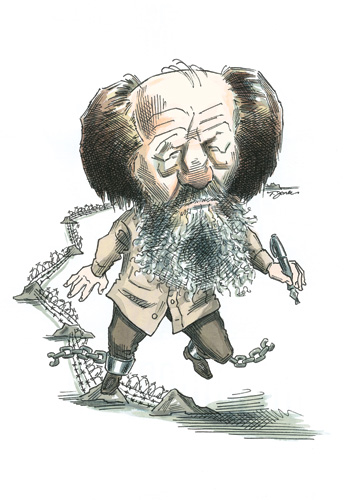
After his expulsion from the Soviet Union in 1974, Solzhenitsyn lived in the West for twenty years, mostly in the United States, in the small town of Cavendish, Vermont. During that period, most famously in his 1978 Harvard University commencement address, he warned of the dangers to freedom that emanated from the Enlightenment: erosion of the distinction between liberty and license; obsession with material goods; neglect of obligations; loss of courage; failure to take seriously the enemies, old and new, of freedom.
No doubt the harsh criticism that Solzhenitsyn leveled at the West in his Harvard address betrayed something of the same instincts for national identity, traditional faith, and homogeneous community that would eventually lead him, sadly, to champion Vladimir Putin’s authoritarian government. And yet, if we wish to defend human rights and human dignity effectively, we must appreciate the weaknesses and unwise tendencies of Western ways of which Solzhenitsyn warned.
The Soviet Union imprisoned millions of political prisoners. Their crime? Failure to see the world exactly as the party saw it and to live exactly as the party dictated.
A short film, One Word of Truth, is based on the speech Solzhenitsyn would have delivered on accepting the 1970 Nobel Prize in literature, had the Soviet authorities not prevented it. In the speech, Solzhenitsyn distinguishes two types of artists. One, reflecting the narcissism of our age, concentrates on re-creating the particularities and peculiarities of his or her own life. The other, exemplary in all ages, seeks to make vivid crucial events and experiences that shed light on the enduring features of human nature and the human condition.
Or, as Solzhenitsyn, in writerly fashion, declared elsewhere, the writer’s task “is to select more universal and eternal questions, the secrets of the human heart and conscience, the confrontation between life and death, the triumph over spiritual sorrow, the laws in the history of mankind that were born in the depths of time immemorial and that will cease to exist only when the sun ceases to shine.”
In the beginning of The Gulag Archipelago, Solzhenitsyn mentions the gulag guards, administrators, and interrogators who, after the camps were closed, wanted to let bygones be bygones by quoting a Russian proverb, “Dwell on the past and you’ll lose an eye.” They omitted, Solzhenitsyn ruefully noted, the remainder of the proverb: “Forget the past and you’ll lose both eyes.”
Solzhenitsyn’s monumental literary achievement suggests a corollary: restore the past and you will give sight to others’ eyes.
For giving sight to our eyes, we friends of freedom and human dignity owe Aleksandr Solzhenitsyn an immense debt.








